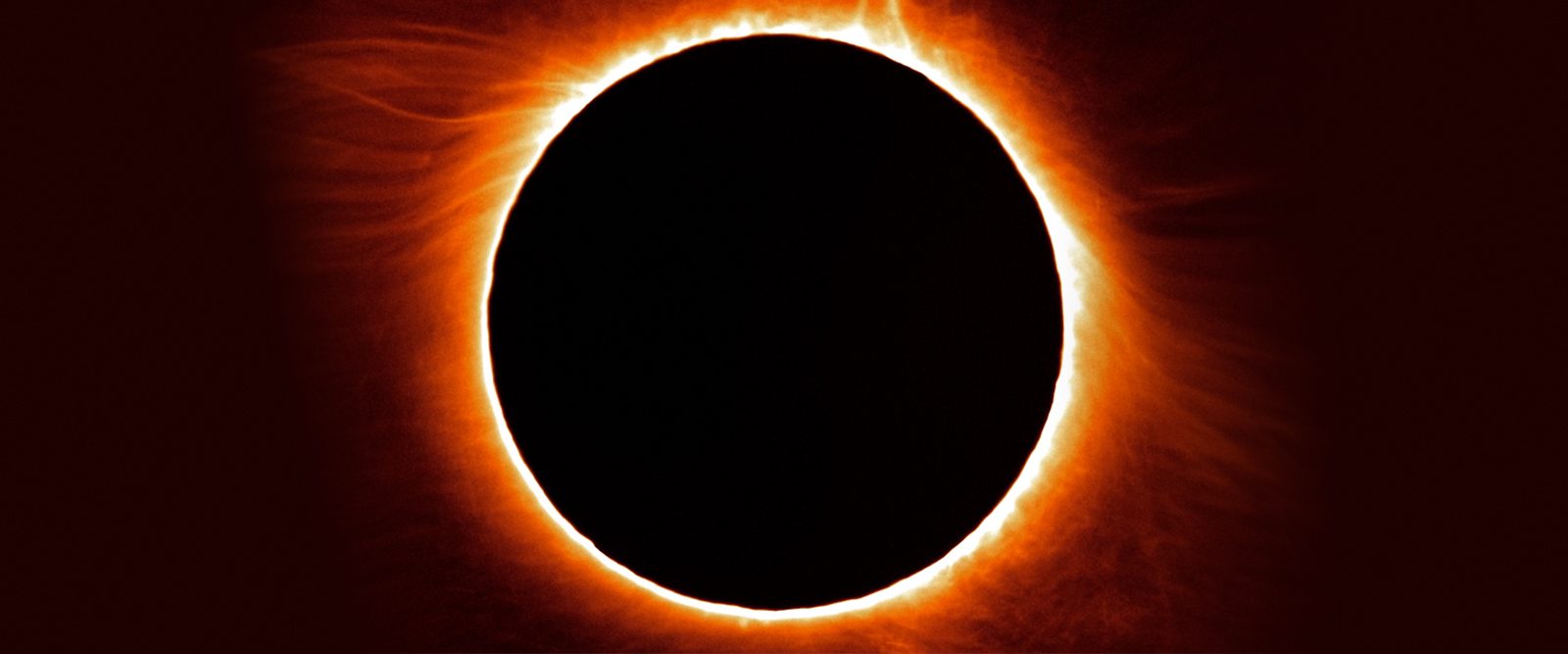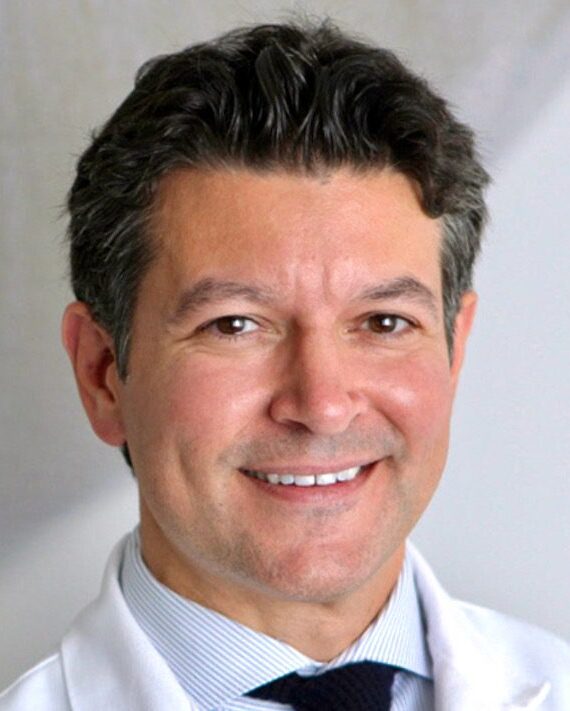How to Keep Your Eyes Safe During an Eclipse
An ophthalmologist shares the reasons you need to protect your eyes when experiencing this celestial event.

On April 8, a total solar eclipse will cross North America in a 70-mile path over Mexico, the United States, and Canada. Many spectators will be eager to check out the rare event of the moon passing between the Earth and the sun, darkening the sky for approximately four minutes — but it’s important to remember to use proper eye protection when viewing the eclipse, especially for kids, says ophthalmologist Dr. Christopher Starr, director of the fellowship program in cornea, cataract, and laser vision correction surgery at New York-Presbyterian/Weill Cornell Medical Center.
Dr. Starr shared with Health Matters the dangers of looking at the sun during an eclipse and tips to protect your eyes while enjoying an event that won’t occur again in the United States until 2044.

Dr. Christopher Starr
Why is looking at the sun so dangerous during an eclipse?
It’s always dangerous to look at the sun for any length of time, regardless of whether there is an eclipse or not. While nothing about the sun will change during an eclipse, your pupils will dilate to let in more light as it gets darker, meaning there may be more exposure to the sun’s harmful UV rays if you look at it right before or right after the sun is completely covered. This UV and IR radiation from the sun can burn the retina. This is called solar retinopathy, and it can lead to legal blindness or permanent distortion or blind spots in the central vision. This can happen within seconds of looking at the sun. It can even cause a sunburn called photokeratitis, which can cause severe pain, redness, burning, sensitivity to light, corneal abrasions and blurred vision. The symptoms can be delayed several hours to days after the initial sun exposure.
Are children’s eyes more vulnerable to sun damage?
Yes. As people age, the natural lens in the eye becomes sclerotic, or cloudier, and a bit yellower, which gives a little more protection from the sun. Kids are more vulnerable because their lenses are perfectly clear. That means more light and UV radiation get through, making their retinas especially susceptible to sun damage.
If someone looks at the sun for even 10 seconds, are they liable to experience damage?
There is no safe time to look at the sun without protection, period. Not a split second, not a half a second, not a quarter of a second. At no time should anyone, a kid or an adult, be looking at the sun even as the sun is partially eclipsed. It’s still unsafe. Nobody should be looking up at the sun without eclipse glasses. The glasses should have the ISO 12312-2 certification. Regular sunglasses are not ISO 12312-2 certified and will not protect your eyes from sun damage.
What are the symptoms of damage if someone thinks they have hurt themself?
For vision damage, like solar retinopathy, the symptoms would be reduced visual acuity, or black spots in the center of vision that persist long after exposure. Sometimes symptoms don’t start until hours later, which is again why it’s so dangerous and why someone might not realize they’re damaging their eyes. You can also get a superficial burn of the eye, what’s called a keratitis. It’s like a sunburn of the surface of the eye, where it burns, it stings, it tears, it gets red, and that could affect vision as well.
Four Safety Tips During an Eclipse
- Wear eclipse glasses: View the eclipse directly with eclipse glasses which meet ISO-12312-2 certification.
- Use telescopes or binoculars with solar filters on the front lenses: Do not look at the sun wearing eclipse glasses through a regular unfiltered telescope or binoculars as they will magnify the sun’s rays to dangerous levels leading to eye damage.
- Keep an eye on the kids: Remember that children’s eyes are more susceptible to UV damage over shorter exposure times than adults.
- Watch online: NASA will be live streaming the event on their website if you cannot get outside to view the eclipse.
What is the most important thing people should know if they’re watching the eclipse?
Keep the eclipse glasses over your eyes the entire time, and make sure children do the same. When you’re actively viewing the eclipse, the glasses need to stay on, and the glasses need to go on their eyes before they look up. Even if it’s cloudy UV rays can still be dangerously high, and you never quite know when the clouds will part so keep the glasses on if you’re looking up.
Can you look at the eclipse if you are in an area where 100 percent of the sun will be covered?
If you’re lucky enough to be in the band where the sun will be totally blocked (i.e ‘totality’), you can view the eclipse with the naked eye for within those few minutes. This is the only scenario in which it’s safe to look with the naked eye.
Is it safe to view the eclipse through binoculars or a telescope while wearing the certified eclipse glasses?
If you’re wearing eclipse glasses over your eyes, and you have just regular binoculars or a regular telescope that doesn’t have a filter in front of it, that’s also extraordinarily dangerous, because it’s just like holding a magnifying glass up to the sun and burning a leaf, or a hole in a piece of paper. The magnifying glass or the binoculars or the telescope will intensify the sun and do even more damage. And many of these glasses that are ISO certified are not safe when you’re looking through a telescope or binoculars that don’t have filters on them. The recommendation of NASA is that if you’re playing around with a telescope or binoculars to look at the sun, you should do it with an astronomer to make sure that it’s safe.
What if someone can’t find eclipse glasses with the ISO certification? How else can they watch the eclipse?
Use the pinhole method to see the eclipse. This can be as simple as poking a hole in a piece of white paper or cardboard, holding it up to the sun, then projecting the sun’s image through the hole onto the another piece of white paper. Putting on multiple pairs of regular sunglasses is not adequate protection.
